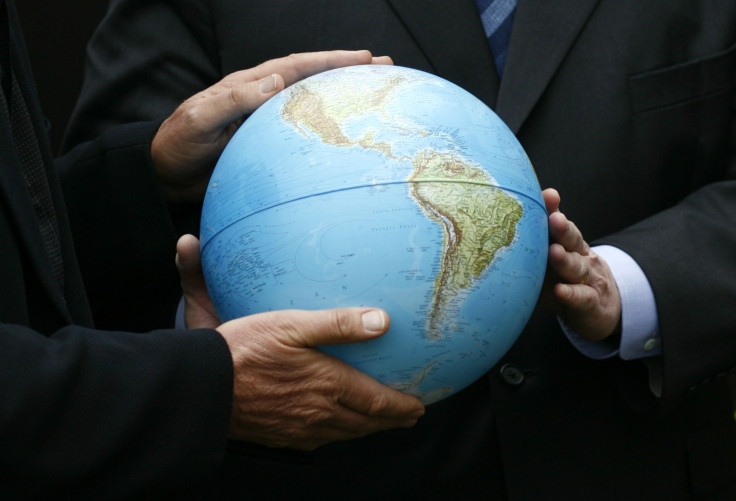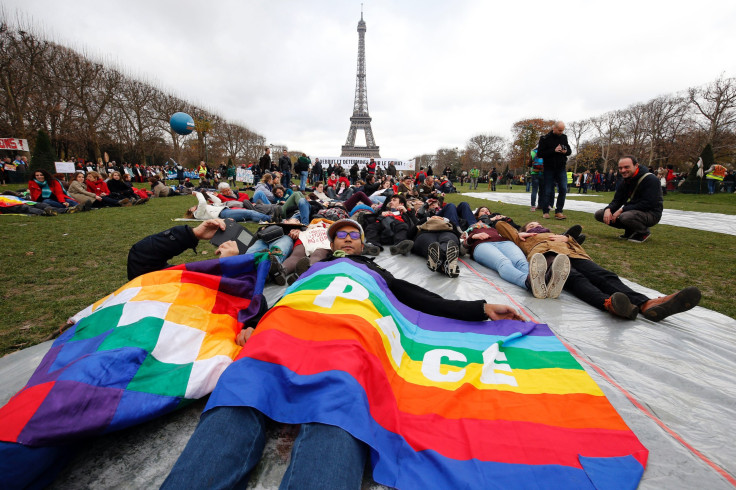Paris Climate Talks: Changes In Store For Developing Nations; Some Leaders Not Convinced Deal Will Do Enough

Nearly 200 countries Saturday agreed on a historic universal climate accord in Paris requiring every country to reduce greenhouse gases to help stall the effects of global warming. The text of the compact was negotiated for weeks, and while some praised the agreement, others lambasted it, saying it does not go far enough.
One of the big changes from earlier international efforts to curb climate change is the requirement that all countries, including those with developing economies, must do something to address climate change, the New York Times reported. Among the nations significantly affected is China, which has not been obligated to report its greenhouse gas emissions to the United Nations even though it is the Earth’s biggest carbon emitter. Some have argued China’s efforts to reduce greenhouse gases remains one of the most important factors in the international reduction of emissions into the atmosphere.
China and other developing nations such as India said they are happy with the climate change agreement despite past opposition, Agence France-Presse reported. The accord obligates all involved countries to have a common verification system to see what the governments of those countries are doing to slow emissions.

"We're happy with the agreement,” Gurdial Singh Nijar of Malaysia said, speaking for the Like-Minded Developing Countries, which comprises about two dozen countries. "We think it is balanced, and we feel they've taken into account our interests.”
Developing countries have been fighting with developed nations for years about who should share most of the burden in curbing emissions. Developing nations have said richer countries have polluted more since the Industrial Revolution, while those richer nations have said developing countries will likely bear responsibility for future emissions.
However, because of China’s slowdown in economic growth, its emissions already have declined, the Economist reported. Emissions in the country grew by 1.2 percent in 2014, much less than the 6.7 percent annual growth in the previous 10 years. China’s 2014 numbers are still higher than the international average of 0.6 percent. Chinese leaders have said they will ensure the country’s emissions will peak in 2030 and decline after that.
"The agreement provides strong assurance to developing countries that they will be supported as they pursue clean and climate resilient growth," the White House said in a statement. "This new global framework lays the foundation for countries to work together to put the world on a path to keeping global temperature rise well below 2 degrees Celsius and sets an ambitious vision to go even farther than that."
Climate activists gather in Paris to protest the outcome of the conference. https://t.co/SJyZB0H132 pic.twitter.com/Cwnfz0xoDT
— New York Times World (@nytimesworld) December 12, 2015The prominent environmental group Greenpeace said the accord is a big blow to the fossil fuel industry but may not be enough. Protesters took to the streets in Paris Saturday denouncing the proposed agreement, arguing it doesn’t go far enough to force governments to deal with climate change and reducing fossil fuels, the Associated Press reported.
Democratic presidential hopeful Sen. Bernie Sanders, Ind-Vt., also criticized the pact, saying while it is a proper first step for addressing climate change, it is too weak to deal with the issue. “The planet is in crisis. We need bold action in the very near future, and this does not provide that,” Sanders said in a statement to the Hill Saturday.
climate Angels @ClimateGuardia at #d12 protest in #paris tens of thousands rallying for #climatejustice #nofibs pic.twitter.com/WVGAoAk4QA
— John Englart EAM (@takvera) December 12, 2015Another prominent critic was James Hansen, a former NASA scientist known as the father of climate change awareness. Hansen told the Guardian that greenhouse gas emissions need to be taxed across the countries involved or the talks are pointless.
“The economic cost of a business-as-usual approach to emissions is incalculable. It will become questionable whether global governance will break down. You’re talking about hundreds of millions of climate refugees from places such as Pakistan and China,” Hansen said. We just can’t let that happen. Civilization was set up and developed with a stable, constant coastline.”
© Copyright IBTimes 2024. All rights reserved.





















